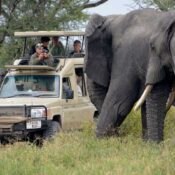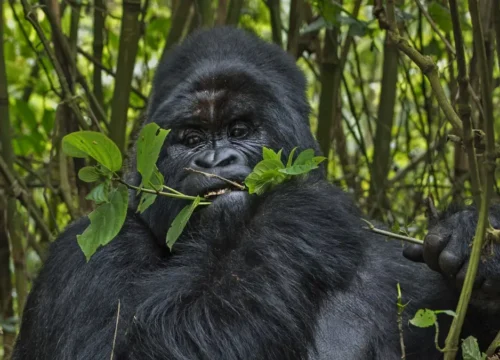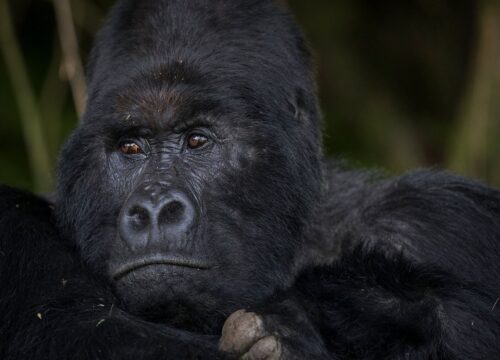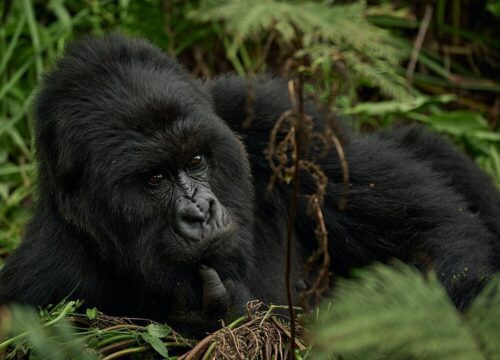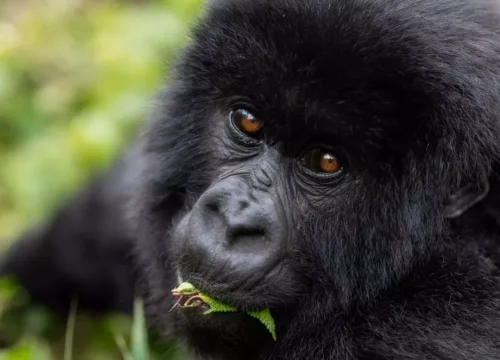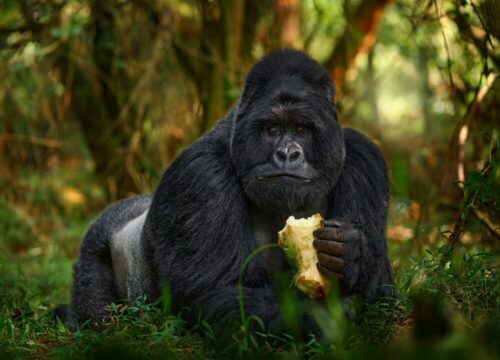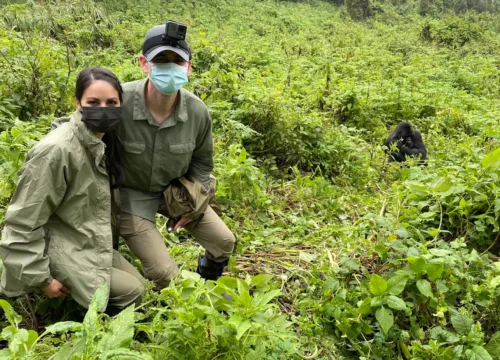What to expect on a safari in Tanzania
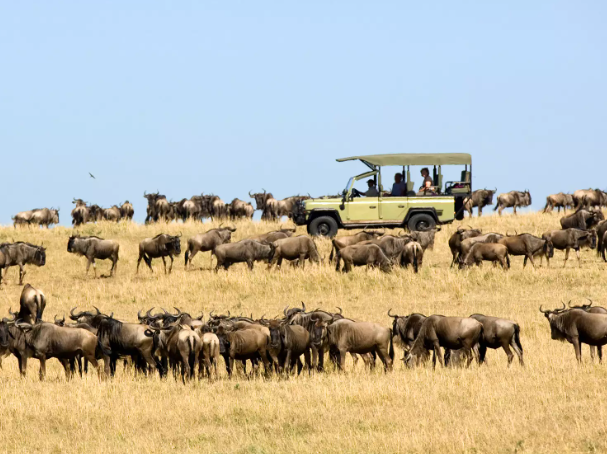

What to expect on a safari in Tanzania, a safari in Tanzania offers a unique and exhilarating wildlife experience, as the country is home to some of the most iconic and diverse wildlife in Africa.
Here’s What to expect on a safari in Tanzania:
Wildlife Viewing: Tanzania is renowned for its incredible wildlife, including the Big Five (lion, leopard, elephant, buffalo, and rhinoceros). You can also encounter cheetahs, giraffes, zebras, wildebeests, hippos, crocodiles, and a wide variety of antelope and bird species.
Serengeti National Park:
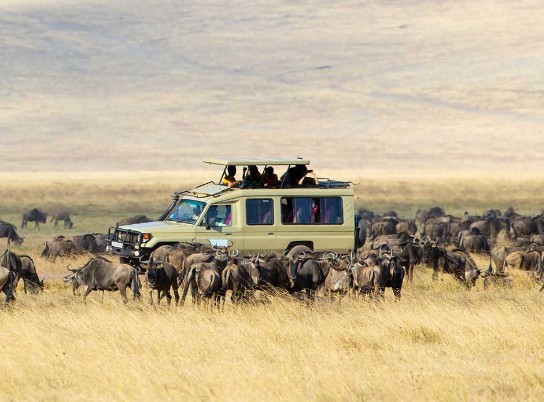
The Serengeti is one of the most famous safari destinations in the world, known for its vast grasslands and annual wildebeest migration. Witnessing this natural spectacle is a highlight of a Tanzanian safari.
Ngorongoro Conservation Area: Home to the Ngorongoro Crater, this area is a UNESCO World Heritage Site and provides exceptional wildlife viewing opportunities, including a high concentration of animals in the crater.
Tarangire National Park: Known for its large elephant population, Tarangire is a beautiful park with baobab trees and diverse wildlife, including lions, leopards, and a variety of birds.
Lake Manyara National Park: This park is known for its tree-climbing lions, as well as its flamingos, hippos, and diverse bird species, making it a great stop for bird enthusiasts.
Ruaha National Park: For a more remote and off-the-beaten-path experience, Ruaha offers excellent game viewing, with a variety of predators and herbivores in a less crowded setting.
Selous Game Reserve: This vast, remote reserve is known for its population of wild dogs and boat safaris along the Rufiji River.
Authentic Cultural Experiences: Tanzania is home to various indigenous tribes like the Maasai and Hadzabe. Many safari operators offer cultural visits to these communities, providing an opportunity to learn about their traditions and lifestyles.
Accommodation: Tanzania offers a range of accommodation options, from luxury lodges and tented camps to budget-friendly options. Staying in a lodge or tented camp within a national park or reserve provides a unique and immersive safari experience.
Safari Activities: In addition to traditional game drives, you can enjoy walking safaris, night game drives, and hot air balloon rides to view wildlife from different perspectives.
Responsible Tourism: Many operators in Tanzania prioritize sustainable and responsible tourism practices, ensuring the protection of wildlife and ecosystems while supporting local communities.
Varied Landscapes: Tanzania’s diverse landscapes include savannahs, forests, mountains, and lakes, offering a wide range of ecosystems and unique wildlife experiences.
Best Time to Visit: The dry season from June to October is the most popular time for safaris in Tanzania because the wildlife congregates around water sources. However, the wet season from November to May can also offer unique experiences, such as the birthing season for many animals.
Remember to plan your safari with Nextgen safaris, obtaining the necessary permits early is important, and follow guidelines for wildlife conservation and safety. A safari in Tanzania is a once-in-a-lifetime adventure for wildlife enthusiasts and nature lovers.
Going to Tanzania for a safari is an exciting and adventurous journey.
Steps and tips to help you plan and prepare for your safari:
Choose Your Safari Destination: Tanzania offers several national parks and wildlife reserves. Research and decide which areas you want to visit based on your wildlife interests and the time of year you plan to travel. Popular destinations include the Serengeti, Ngorongoro Crater, Tarangire, Lake Manyara, Ruaha, and Selous.
Determine the Duration: Decide how long you want your safari to be. Safaris can range from a few days to a couple of weeks, so plan according to your schedule and budget.
Budget and Cost: Safaris can vary significantly in cost depending on factors like the type of accommodation, duration, and the parks you visit. Be sure to let us know your budget for your safari, considering accommodation, meals, transportation, park entrance fees, and any additional activities.
Visa and Passport: Ensure your passport is valid for at least six months beyond your planned return date. You may also need a tourist visa to enter Tanzania. Check the visa requirements for your nationality and obtain one if necessary.
Health Precautions: Consult Nextgen safaris about necessary vaccinations and medications for your trip. You may need vaccinations like yellow fever and malaria prophylaxis. Make sure you have adequate travel insurance that covers medical emergencies.
Packing Essentials: Pack lightweight, breathable clothing in earthy tones for safari drives. Don’t forget items like a wide-brimmed hat, sunglasses, sunscreen, insect repellent, a reusable water bottle, and comfortable walking shoes. A good camera and binoculars are essential for wildlife viewing.
Travel Adapters: Tanzania uses Type D and Type G electrical sockets, so you may need adapters to charge your devices.
Currency and Payments: The local currency is the Tanzanian Shilling (TZS), but US dollars are widely accepted. It’s a good idea to carry some cash, but major credit and debit cards are also accepted in many places.
Local Customs: Respect local customs and traditions, especially when interacting with indigenous communities. Dress modestly and ask for permission before taking photos of people.
Wildlife Viewing Etiquette: Follow your guide’s instructions during game drives, and remember to stay inside the vehicle. Do not feed or disturb the animals. Keep noise to a minimum to avoid scaring away wildlife.
Photography: Be prepared to take amazing wildlife photos. Ensure your camera equipment is in good working condition, and practice your photography skills before the trip.
Follow COVID-19 Guidelines: Stay updated on any COVID-19 travel restrictions and requirements for Tanzania. Check wit us for vaccination and testing requirements, and follow any safety protocols in place at the time of your trip.
Remember that a safari in Tanzania is an incredible adventure, and it’s essential to be prepared, respectful of the environment and local communities, and ready to immerse yourself in the beauty of the African wilderness. Enjoy your safari!
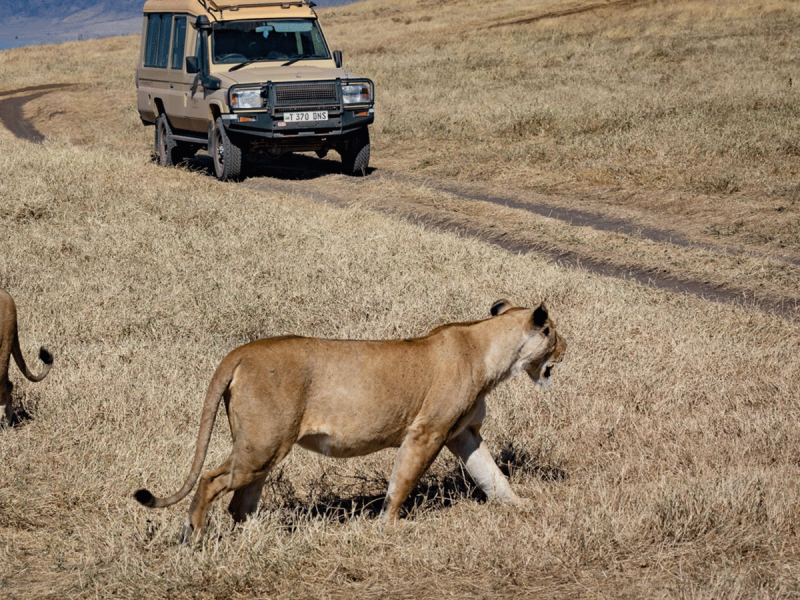
Read about
10 Things you Should NOT DO on an African Safari.
What to expect on a safari in Uganda.
Bwindi Impenetrable National Park
How to Choose the Best Tour Operate for Your Safari in Africa
What To Pack For An African Safari
Some of our African Safaris
1 Day Jinja Ultimate tour Experience
1 Day White Water Rafting in Jinja
3 Days Bwindi Gorilla Habituation via Rwanda
3 Day Birding Safaris and Photography in Uganda
3 Day Safari to Queen Elizabeth National Park
3 Day fly in Gorilla Trekking Safari from Masai Mara
3 Day Grand Gorilla Trekking Safari
4 Day Chimpanzee and Gorilla Trekking Safari
Recent Posts
Last Minute Deals
Quick booking process
+49 1575 4711313



